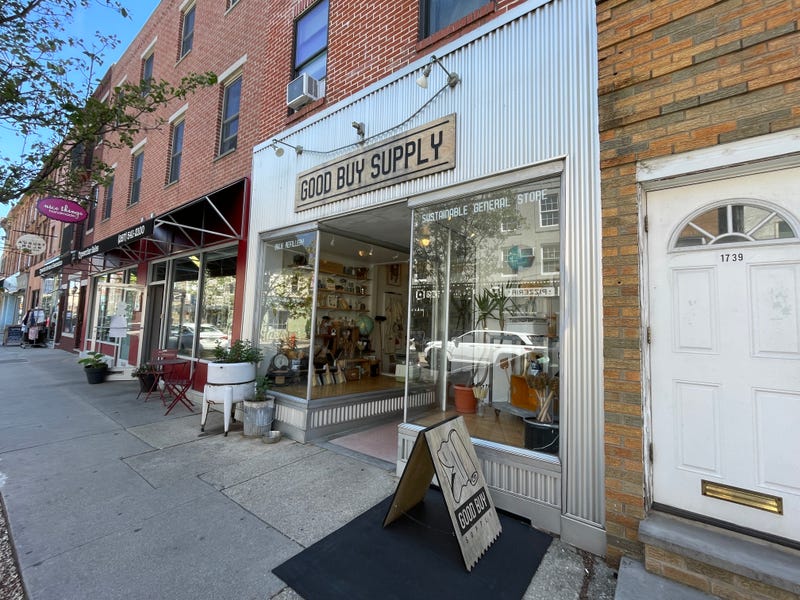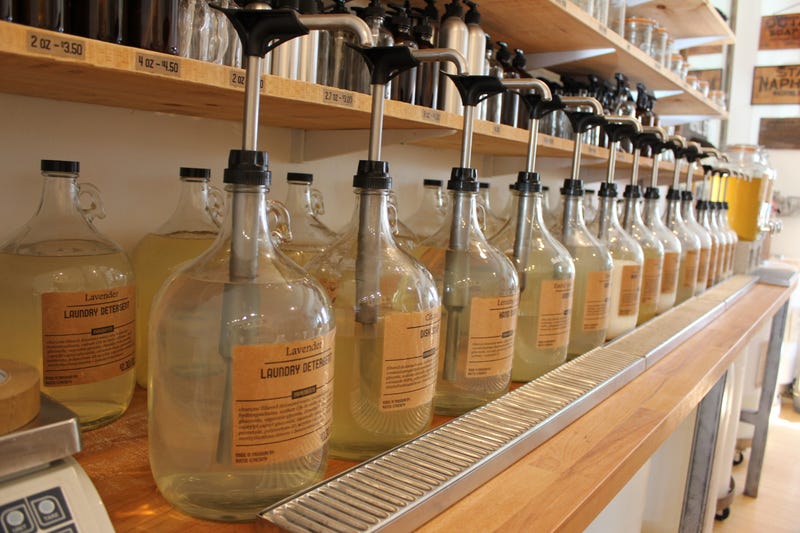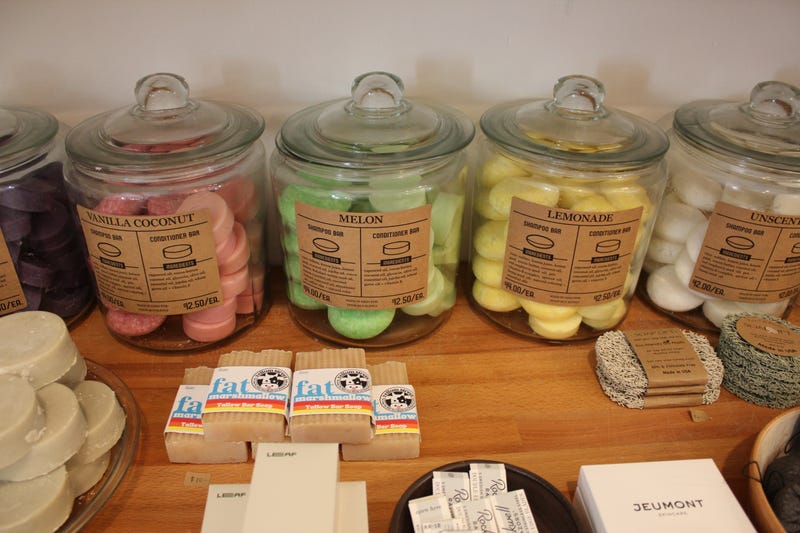
Listen to KYW Newsradio for a special edition of "Audacy Conversations: The State of the Environment."
PHILADELPHIA (KYW Newsradio) — If you’ve ever felt bad for sending an empty plastic soap bottle to the landfill, Good Buy Supply has a solution.
The general store on Passyunk Avenue sells sustainable household products and will refill the empty bottles brought in. Owner Emily Rodia hopes this practice could become the norm.
“You see a coffee shop on every corner. What if there was a refill shop on every corner?” she said.
In fact, Rodia said the most popular part of the store was its refillable bulk bar. Customers come in daily with their containers or jars to fill with laundry detergent, dish soap, hand soap and more.

The products themselves are sourced from small women-owned businesses, according to Rodia, and they’re sourced ethically and sustainably.
“Our mission is to do that research for you. So you don't have to be like: ‘Am I getting a sustainable product? Is this something that's actually good for me? What's in it?’” she said.
Online, Rodia said sustainable products are becoming the mainstream, but having a store in the heart of South Philly, where people can touch and smell the products, has encouraged many neighbors to start with a small change.
“It may not feel like a lot. But if we all make one little switch, think of all those, you know, material that's not getting put in the landfill,” she said.

Richard Niesenbaum, the director of sustainability studies at Muhlenberg College, said there’s a growing market for eco-friendly products. In 2022, over $2.74 million, or 17.3% of all purchases were related to sustainability, according to Niesenbaum.
Companies are also noticing that growth in the market.
“Corporations, they're responding to the needs and wants of individualism. And that's what capitalism is about,” said Niesenbaum. “And they can, you know, meet the needs of consumers that really want to shop sustainably.”
As for where to start, Rodia encourages progress over perfection when it comes to reducing your waste.
“It's totally not possible to be completely plastic free just in the society that we have right now. So simple swaps are the best swaps and doing things slowly over time is the most sustainable for you,” she said. “And for everyone else, too.”
